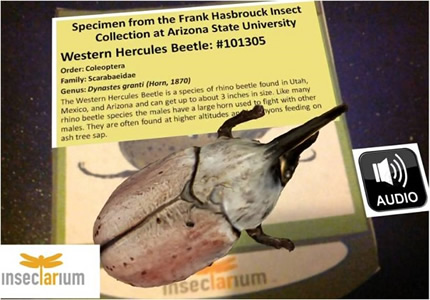Funding, Grants & Awards | News
Digitization Project Will Enhance Collection of Biodiversity Specimens
The University of Florida will lead a consortium of seven institutions in a $7.5-million project funded by the National Science Foundation (NSF) to digitize biodiversity collections.
The research is intended to help scientists understand how changes in biological diversity can affect human societies. With the grant from the NSF, the digitization project will make a number of specimens available to researchers around the world who are working on biodiversity issues.
| |

Some of the specimens to be digitized with the NSF project have remained untouched — and unseen — for 100 to 200 years. |
|
"There are specimens that have been around for 100 to 200 years, but they are in a drawer or on a shelf somewhere, and it's hard to know where everything is and how to get the data you need," said Larry Page, director of iDigBio, based at the Florida Museum of National History on the Florida campus. "If it's online, you can touch a button and find in a second what it might have otherwise taken you a lifetime to know was there."
This is the fourth round of grants from the NSF's Advancing Digitization of Biodiversity Collections Program, designed to make more data accessible to biodiversity researchers. This year's grants are specifically targeting the impacts of the rapid changes taking place in species diversity of North America's arthropods and mollusks, biodiversity changes in the Appalachians and the impact of invasive species in the Great Lakes.
The digitized data generated by the grants will be available to the public via iDigBio's specimen portal, which already has more than 20 million specimen records and more than 3 million media records.
The eventual uses for the specimens could range from taxonomists studying variations in populations to discover and describe species, to evolutionary biologists studying the history of the Earth, and ecologists working to understand relationships among species and ecosystems.
Along with the University of Florida, other participating institutions are Appalachian State University, the Field Museum of Natural History, University of Wisconsin-Madison, Brigham Young University, the University of Cincinnati and the University of Vermont & State Agricultural College.
About the Author
Michael Hart is a Los Angeles-based freelance writer and the former executive editor of THE Journal.

